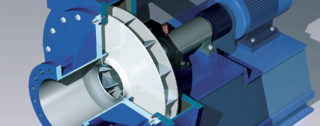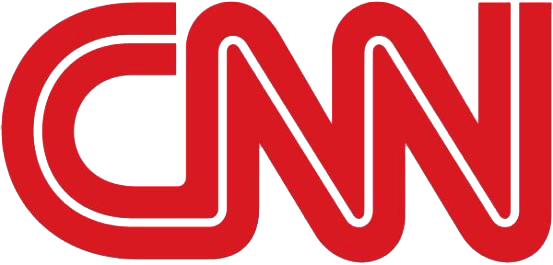The Complete Guide to Technical Translations
Technical translation, as its name suggests, concerns scientific and technical subjects. It uses specialised terms and needs a good technical translator with an excellent grasp of the subject matter.
What types of text does technical translation encompass? We’re generally talking about journals: articles published with a scientific, engineering, technical or medical theme. These should be tackled by translators with a degree in the relevant subject matter.
Other examples include computer product-spec sheets, which might not require in-depth IT knowledge, but would need a good understanding of specialised terminology.
Technical translation is more expensive than regular business translation and may take longer. How much more time and expense depends on the scientific or technical complexity required, the availability of specialist translators and how in-demand they are.
Then there are technical manuals. They should be totally objective with no sign of the author or subjectivity. Their sole aim is to help the reader perform a predefined task.
Which Industries Need Technical Translations?
Here are some of the industries that typically need technical translations:
- Software and Hardware
- Consumer Electronics
- Mobile Devices
- Augmented and Virtual Reality
- Oil and Gas
- Mining and Metals
- Alternative Energy
- Forestry and Paper
- Chemicals
- Life Sciences
- Medical, Healthcare and Pharmaceuticals
- Bioscience and Technology
- Environmental Sciences
- Video Games
- Apps
- Mobile Games
Choosing a Technical Translations Company
It’s time to choose a technical translation agency. But resist the desire to focus on price and how quickly they can get it done. Technical translation done correctly will take more time than normal translation. That means the lowest quote and fastest turnaround could add up to the poorest job, which could cost you more in the long run. You buy cheap, you buy twice.
Here are some things to look out for:
1. Industry Expertise
An agency that uses technical translators vastly experienced in the required specialism, whilst also holding high-level language qualifications, is a must. Don’t be fooled by linguists who claim to be generalist technical translators: familiarity with the specialised terminology of your industry is key.
2. Ask Around
Have your colleagues, suppliers or network contacts used technical-translation services? Ask them. Find out what they got translated and in which languages. What went well? What went less well? What did they like or dislike about the agency? Get as much information as you can before you approach potential suppliers.
3. Agency Experience
What experience does the agency have in technical translation? Ask to see case studies, testimonials and other evidence of successful projects.
4. Terminology
Your agency should be a true partner engaged in precisely nailing the terminology of your industry and business in the appropriate foreign language. To do this, they’ll need source material such as glossaries, style sheets and other reference material that you’ve collated.
Before the project kicks off, put together a glossary of foreign-language terms that your translator can use consistently throughout. If possible, have the terminology checked over by an internal reviewer.
5. Belt and Braces
Your content must be fluent in the chosen languages and free from errors. That’s why it pays to check that an independent linguist will proofread the content. Any material that was proofread in English should get the same treatment in any languages it’s translated into.
6. Future Re-use
Likely to need similar materials translated in the future? Ask your agency about translation memory. With the right software, you’ll not only enjoy consistency with all your translated materials but also save money. That’s because the repeated content comes in at a lower cost than new material.
It can add up to substantial savings where material has repeated boilerplate text, such as ‘about us’ or warranty statements.
7. Related Services
What about related language services? You should consider things such as desktop publishing or software localisation. Finding the right language partner that offers every language service under one roof will make your job easier: there’ll be one point of contact and one accountable party in the case of issues, with no dispute over blame.
Gearing up for Technical Translation
To get the best results from your project, it’s worth asking a few key questions to find the right language partner. Getting the right answers will make everything quicker and more efficient.
8. Has Your Business Used Translators Before?
If you don’t know, somebody else might. Ask around. If the answer’s yes, try to get copies of what was translated.
9. In What Form Will You Provide the Documents?
Agencies prefer an editable electronic file. If someone’s given you a hard copy to work from, a PDF or a scan, press them for something editable like Microsoft Office, InDesign, QuarkXpress, HTML files or another electronic format.
You might be able to get a quote or an estimate from a scan or fax. However, they won’t be able to use their computer-aided translation (CAT) tools if they haven’t got the source text in electronic format.
CAT tools make translation more efficient and keep terminology consistent. If you’re planning to reuse parts of the content in future, having electronic files is vital, as the agency can use translation-memory software.
10. In What Form do You Want the Text Back?
Are you happy to get the results back as a Word file? Or are you needing it formatted like the original? There might be text embedded in graphics: do you want that translated? Will desktop publishing be required?
11. Who is the Text Aimed at?
Who is your target audience? Is the document aimed at a certain country or region? Who will use the materials and for what? If you need a foreign-language article for international marketing, a meticulously proofread, fluent translation will be required.
However, if the document is purely internal, a single-pass translation might be perfectly acceptable. Think about the level of quality needed as it will affect the price.
12. What about Reference Materials?
If the documents deal with your own products or services, there’ll be specialised terminology and your own business’ brand names to consider. It’s good to give your agency context by providing promotional literature, website links and other materials. If you have glossaries or guidelines, they can also help.
As a minimum, if you can’t provide answers about the content, you should be able to tell the agency who can, so they can get the answers they need.
13. What’s your Deadline?
Be clear about when your company needs the translation back. Tell the agency about any definite deadline, even if it’s a long time off. The translation might involve more work than you imagine and might need extra services such as desktop publishing and localisation. Maybe your company’s expectations are unreasonable? Better to find out earlier than later.
14. Do You Have a Reviewer?
Companies will occasionally want their own reviewers to check translations. A reviewer familiar with the industry can ensure that terminology, tone and usage are correct for the target audience. Find out from the start if your company will use an internal reviewer and who it is.
If your agency suggests putting together and translating a glossary of popular terms, your reviewer should check this over before the agency does its work. You’ll also want to coordinate with the reviewer so they make enough time for the required work and don’t delay matters.
In short, it’s crucial to get as much information as possible to the agency so that they can give you the best results from your technical-translation project. Make a list of what you expect, although if something isn’t available, it’s not usually a problem and your agency should still be able to help out.
If you are interested in how we can optimise the translation process for your organisation, please contact [email protected].











